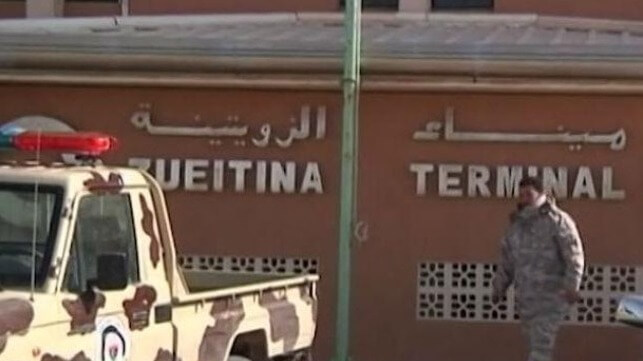Renewed Unrest Forces Libya to Close Two Oil Terminals

Libya's National Oil Corporation has been forced to declare force majeure at two key oil ports and two major oil fields, effectively taking all of the nation's oil exports offline. The shutdown comes at an exceptionally challenging time for the world oil market, as Western nations are already hunting for ways to replace the millions of barrels per day they purchase from Russia.
Libya's oil ports have closed and reopened repeatedly since the nation's civil war began in 2011. As the front lines moved back and forth, competing governments and warring factions would overrun producing fields and terminal facilities, hoping to win control of oil revenues; during truces, ceasefires and withdrawals, production would resume in fits and starts.
The latest shutdown affects the Al Sharara oilfield (Libya's largest), the El Feel oilfield, and the loading terminals at Melita and Zueitina. It takes a substantial fraction of Libya's one million barrels per day of export capacity off the market, and it sets back the plans that the NOC had laid for increasing exports by another 400,000 bpd.
The proximate cause appears to be a new constitutional crisis. Libya's inhabited coastline has long been split between a UN-recognized government based in Tripoli and a warlord regime based in the eastern half of the country. In a mediated agreement in March 2021, both sides agreed to the appointment of a new interim prime minister for all of Libya, Abdul Hamid Dbeibah.
However, in February 2022, the eastern government based in Tobruk reneged on the deal and appointed its own prime minister, Fathi Bashagha. Dbeibah has refused to leave office and says that he will stay until proper elections are held.
Protesters who support Bashagha have occupied production facilities at El Feel and Al Sharara, demanding Dbeibah's resignation, according to local media. The NOC has been forced to close down production for safety reasons during these "arbitrary closure attempts."
The disruption appears to be contributing to a rise in global oil prices. After a week of trading in the range of $105 per barrel, Brent crude futures rose Monday to about $113 per barrel.
